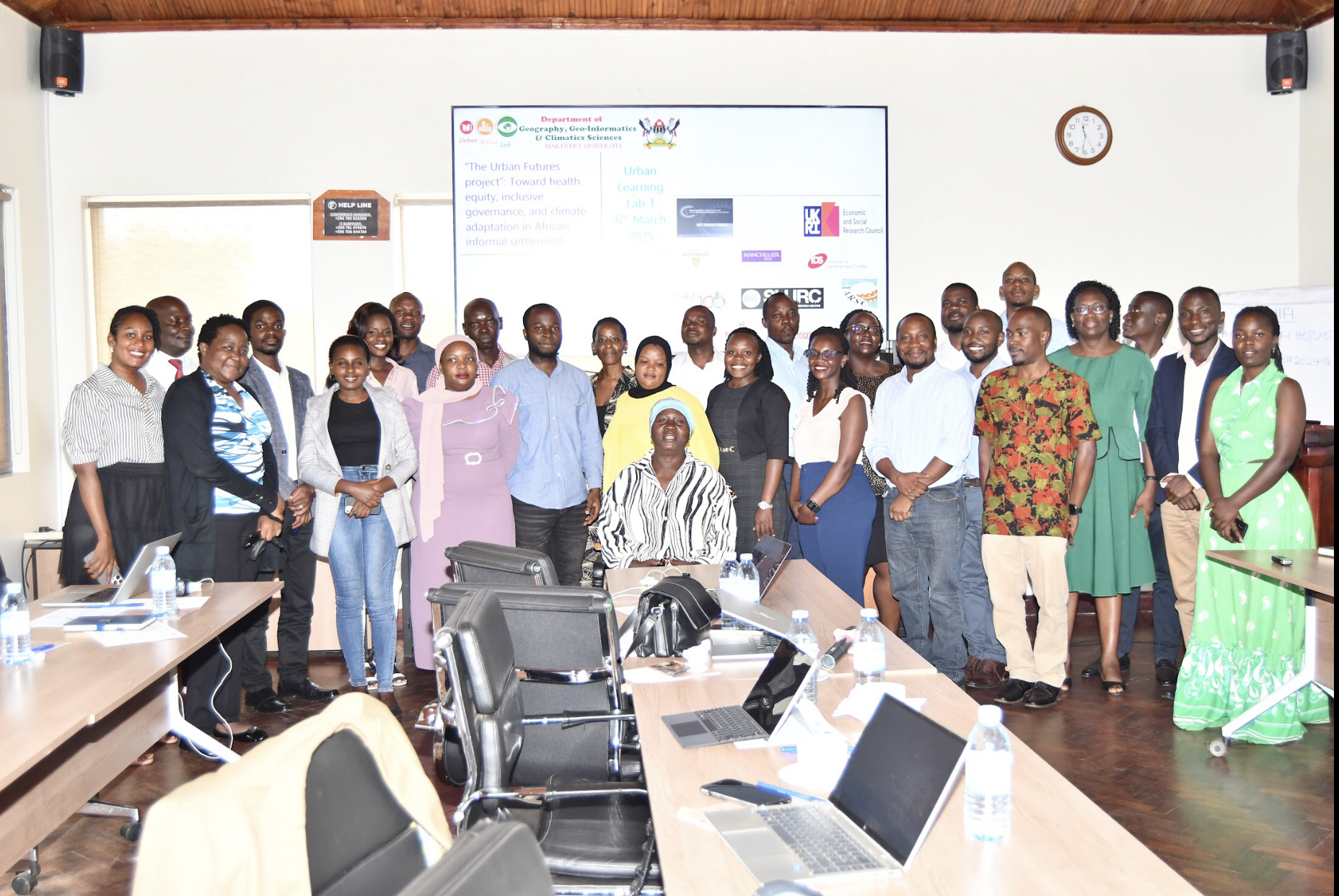
“Toward health equity, inclusive governance, and climate adaptation in African Informal Settlements”
Makerere University, in collaboration with the University of Waterloo and the University of Manchester, on 6th March launched a new project titled: The Urban Future Project: Toward Health Equity, Inclusive Governance and Climate Adaptation in African Informal Settlements, and Urban Heat Risk Awareness Raising and Knowledge Exchange. The Urban Futures project is the first learning lab initiated to foster collaboration, knowledge exchange amongst the various stakeholders and inclusive decision-making process that addresses complex challenges faced by informal settlements in Kampala.
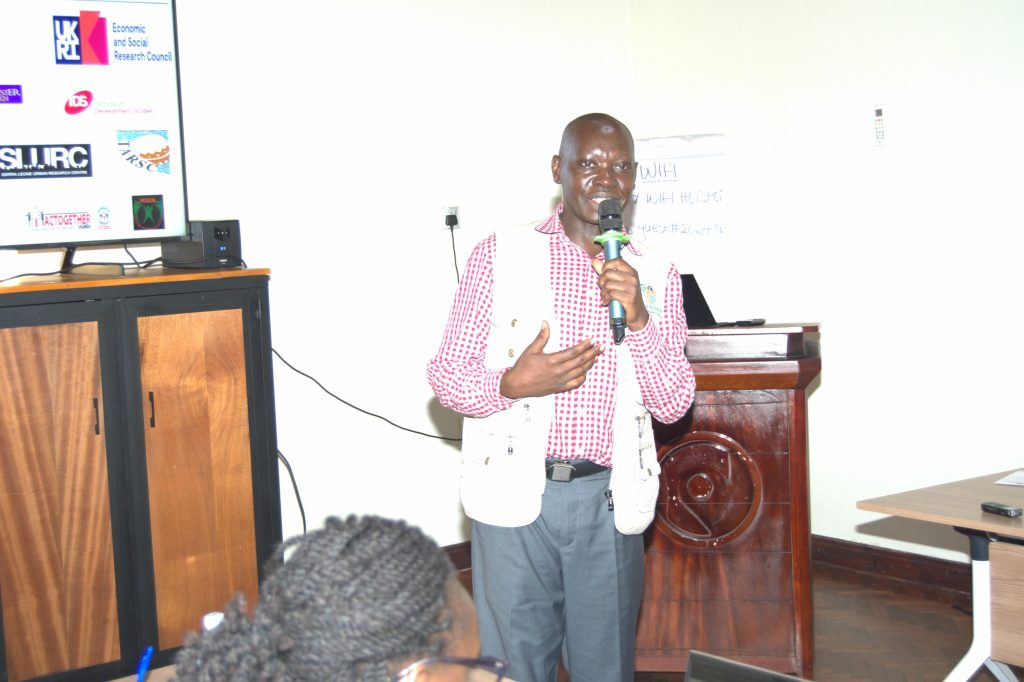
Project Partners: Makerere University, University of Waterloo and the University of Manchester, Institute of Development Studies, Sierra Leon Research Centre, Training and Research Support Centre, Government of Uganda, Kampala Capital City Authority, Act Together Uganda, and Focus for Life Development Link.
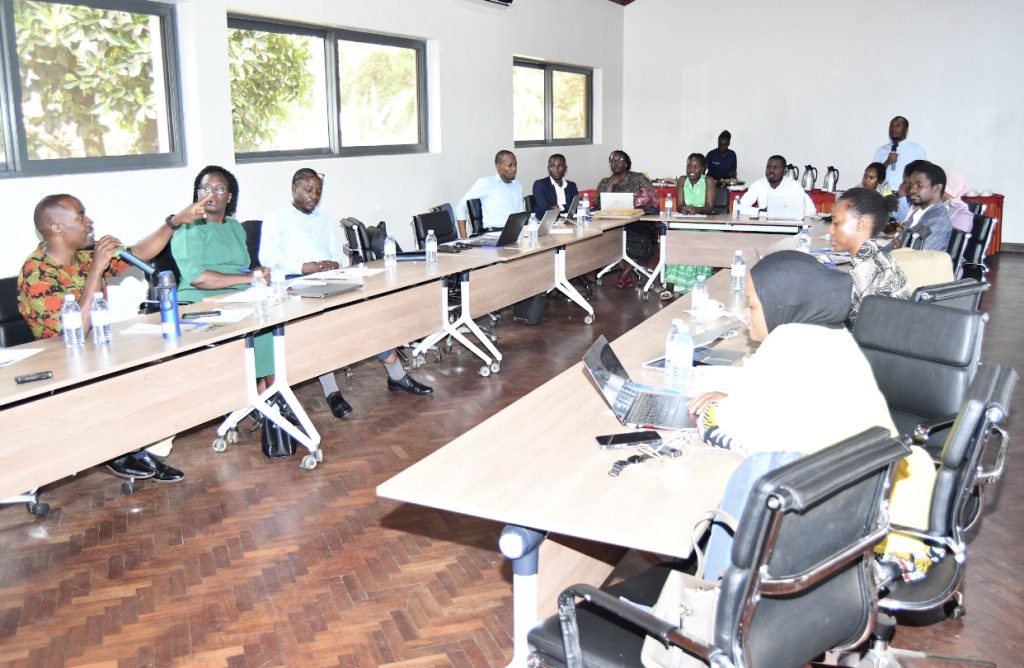
Unveiling the Urban Heat Management Handbook
During the launch event at Fairway Hotel in Kampala, the Urban Heat Management Handbook was unveiled to help raise awareness and promote knowledge exchange on heat stress. The handbook covers critical topics such as understanding heat resilience, assessing heat risk, planning for heat resilience, responding to heat waves, and providing solutions for heat resilience.
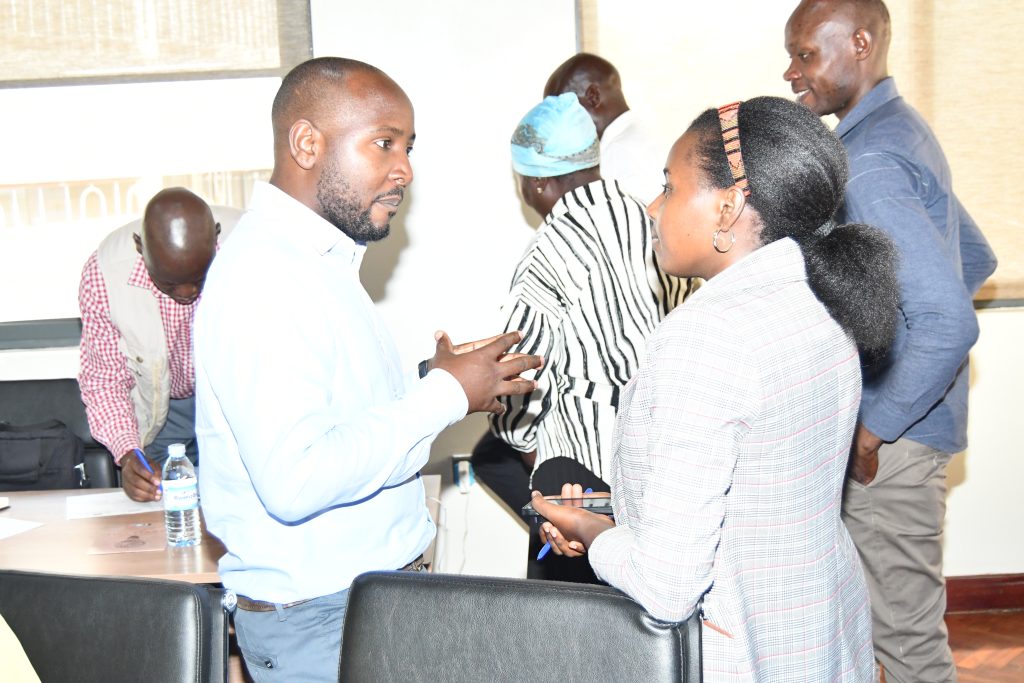
The Urban Futures project will highlight the multifaceted risks faced by informal residents and workers, aiming to create South-South learning opportunities to address these inequitable threats. The study will focus on vulnerable populations in informal settlements and workers, seeking to identify equitable adaptation pathways to address climate risks that exacerbate health disparities.
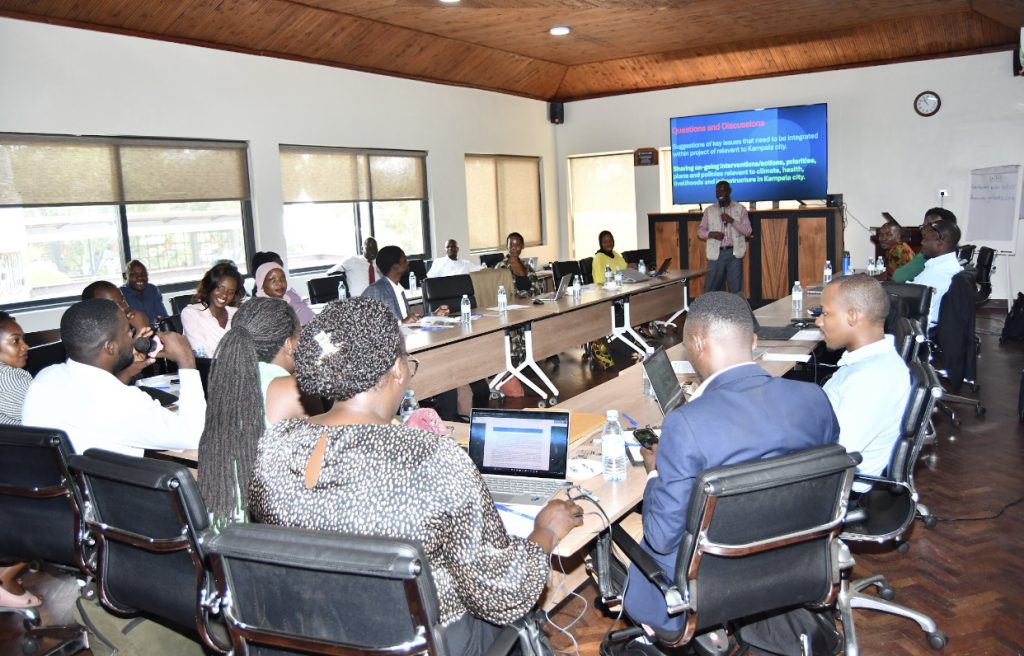
Project Approach
The project will adopt a collaborative approach involving diverse stakeholders, focusing on developing health adaptation strategies, building resilience, and fostering growth through knowledge co-generation, continuous learning, evaluation, and improvement. The research will be conducted in three large African cities on the frontlines of climate change: Kampala (Uganda), Freetown (Sierra Leone), and Bulawayo (Zimbabwe). Through interdisciplinary and participatory methods, the study will gather evidence on how climate-related risks impact the daily lives of residents and workers in these areas.
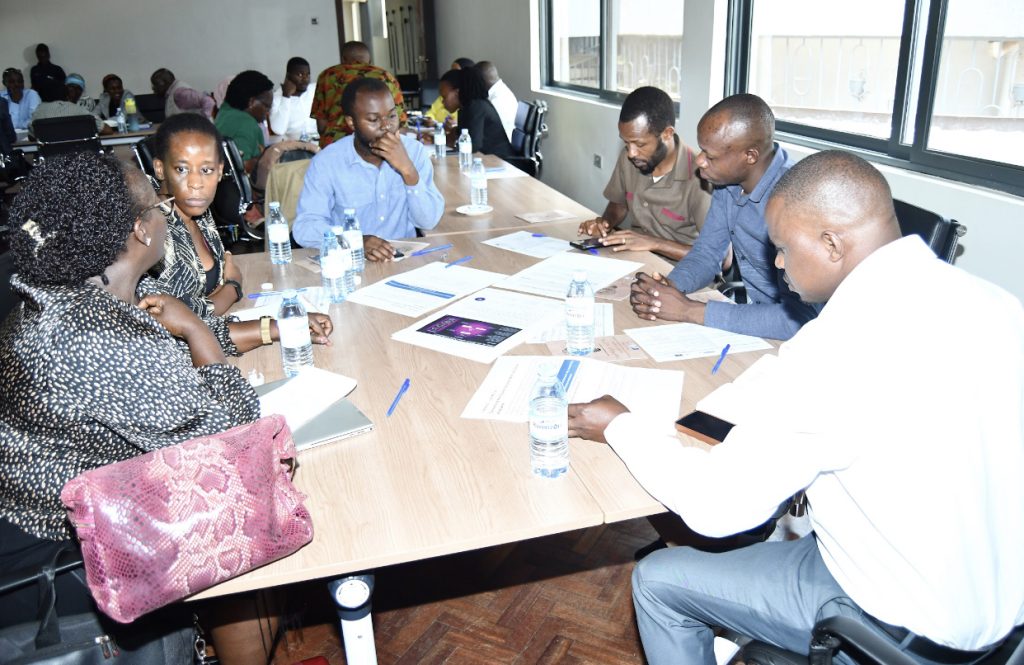
Key Remarks
In his opening remarks, Dr. Paul Mukwaya, Head of the Department of Geography, Geo-informatics, and Climatic Sciences, described the learning lab as an essential space for dialogue among stakeholders in informal settlements. “The Urban Action Lab is our space to discuss urban development challenges together as a community, to find effective solutions,” he said.
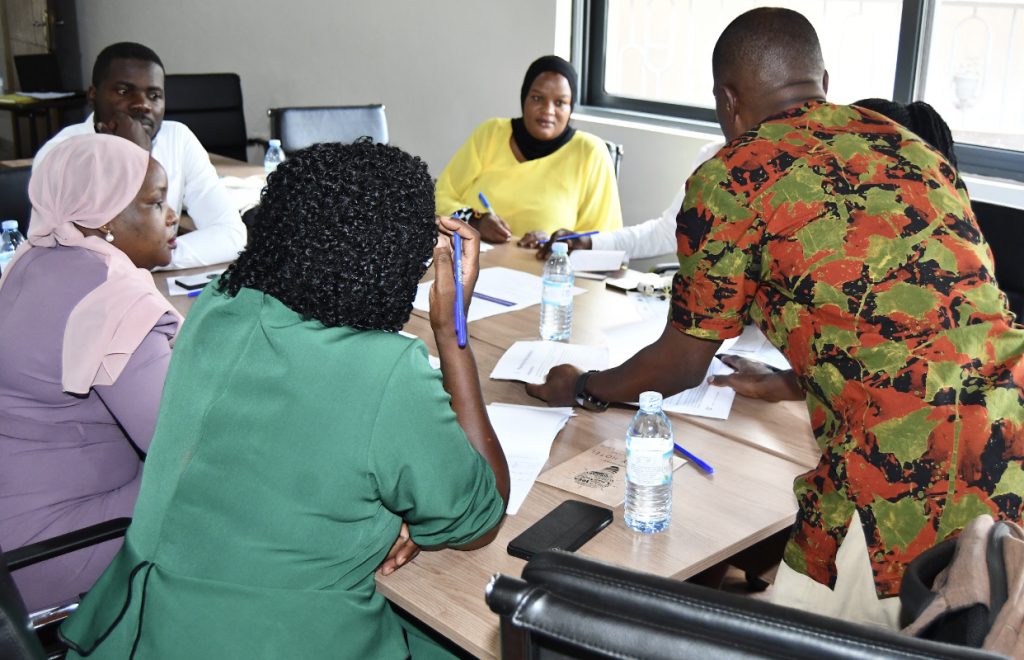
Ms. Anita Kusiima, representing the Executive Director of Kampala Capital City Authority (KCCA), spoke about the challenges posed by attitudes toward enforcement. “KCCA has initiated strategies like greening, skilling, and livelihood programs. However, we struggle with enforcement. Until statistics like these are shared with communities, people don’t realize how much we are destroying our environment. It’s common to wake up and find over 40 trees have been cut down overnight. In places like Nakasero, many trees are cut during the night. As a country and a city, we face not only poor attitudes toward the law but also towards the quality of life we want to achieve,” she said. “Urban farming has seen success at the household level, greening has been effective, and school programs aimed at raising awareness have also been successful.”
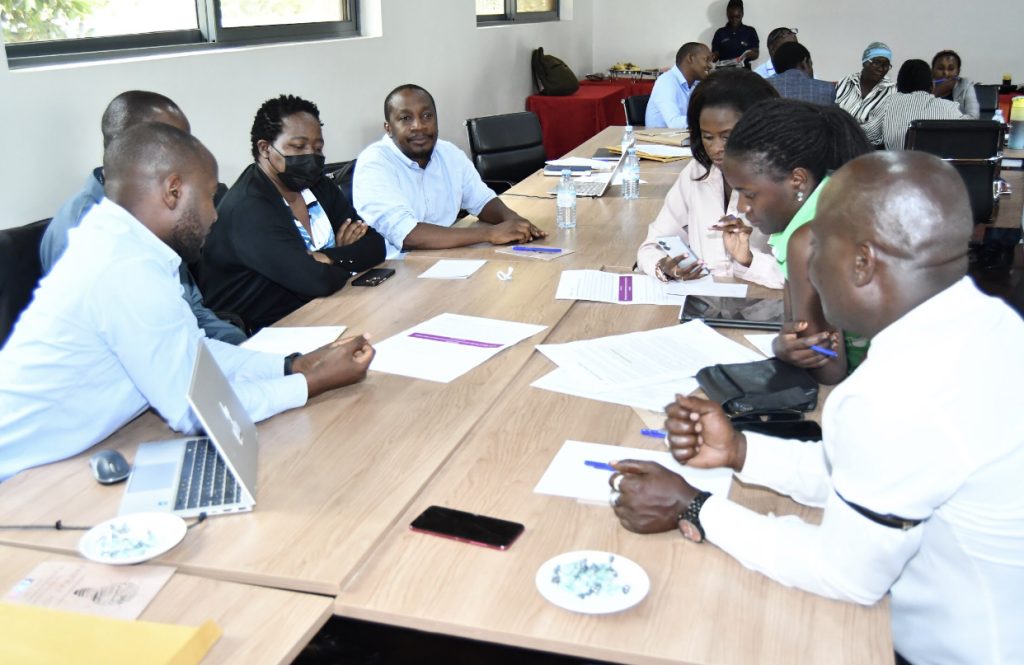
Dr. Robbinson Kabanda, a Veterinary Doctor at KCCA, emphasized the learning lab’s potential in addressing issues such as budget cuts and the impacts of climate change on Kampala. “With budget cuts affecting many funded activities, this is a great opportunity for Kampala, where the majority live in informal settlements and are especially vulnerable to climate change,” he said. “These collaborative spaces foster innovation and experimentation in urban contexts, bringing together various stakeholders and practitioners to address complex urban challenges through shared learning.”
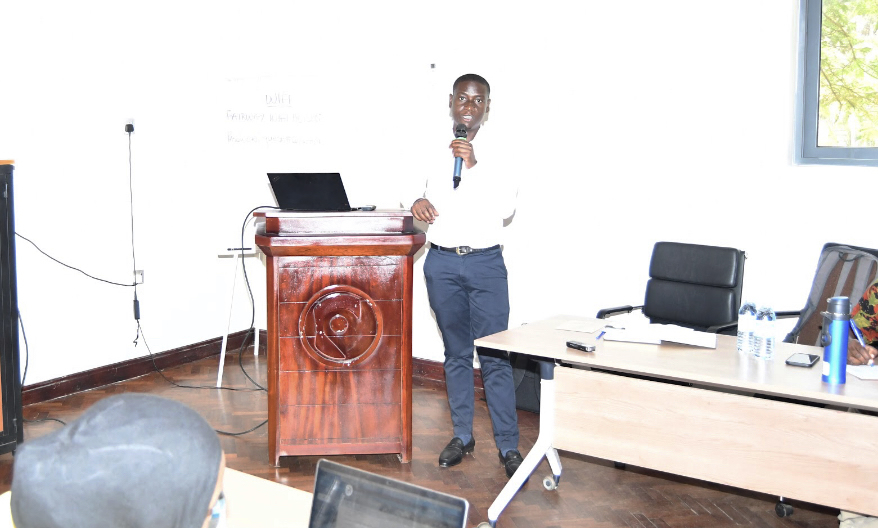
Mr. Hakimu Ssevviiri, from the Research Urban Action Lab, highlighted the power of the urban learning lab in addressing urban challenges through collaboration, innovation, and community engagement. He emphasized the importance of urban resilience, improved decision-making, and public involvement.
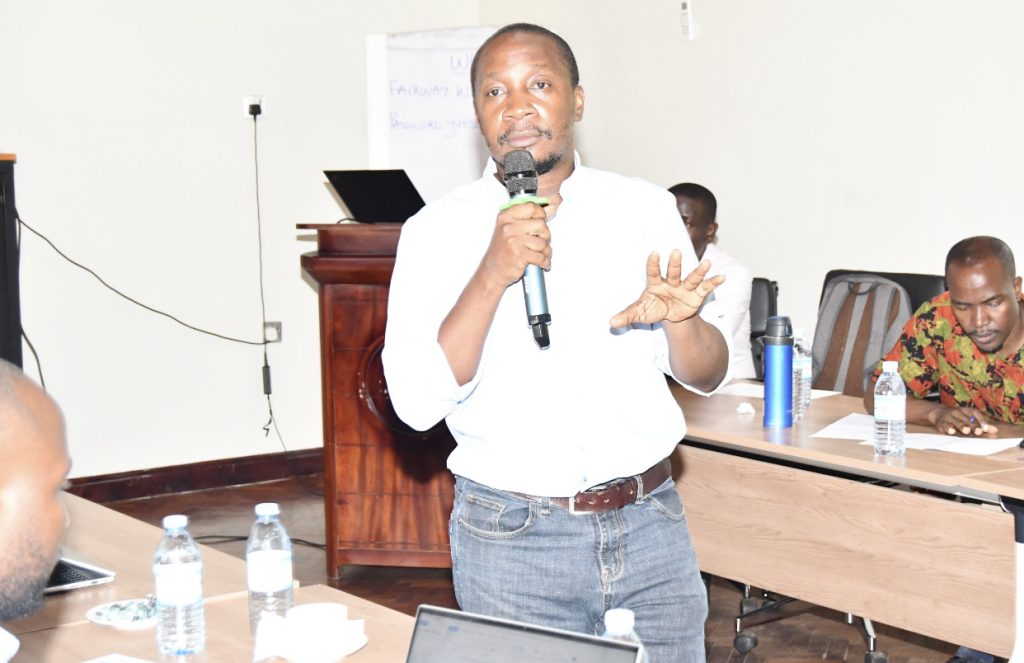
Issues highlighted at the Launch
- There is a critical need for timely interventions to address heat stress and other challenges facing informal settlements.
- Informal settlements lack sufficient space for tree planting.
- Trees take time to mature, making them a long-term solution.
- Reducing electricity costs and improving water access are immediate priorities.
- Solar energy use is vital for reducing heat stress, particularly in households.
- Strong government policies on heat stress, such as promoting the use of mosquito nets, are essential.
- Wetland degradation and tree clearance are major contributors to heat stress.
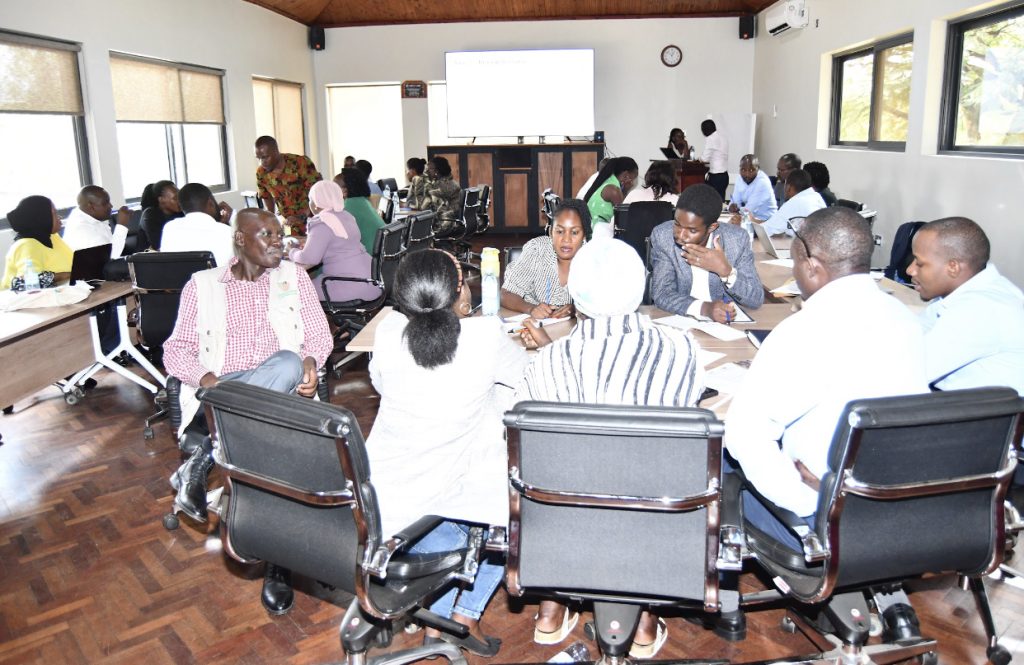
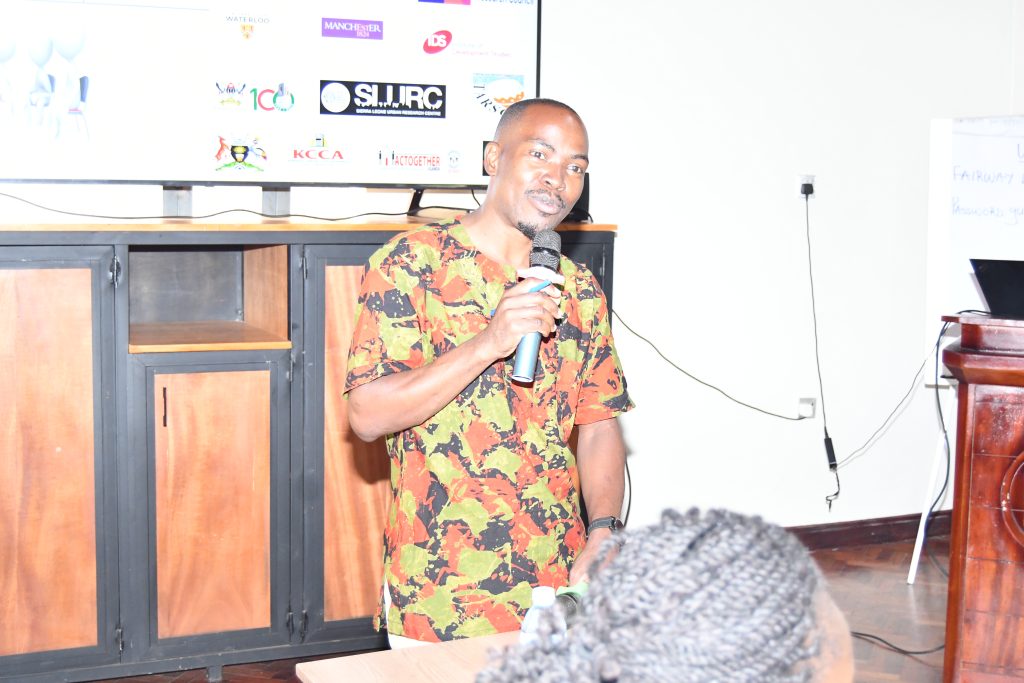
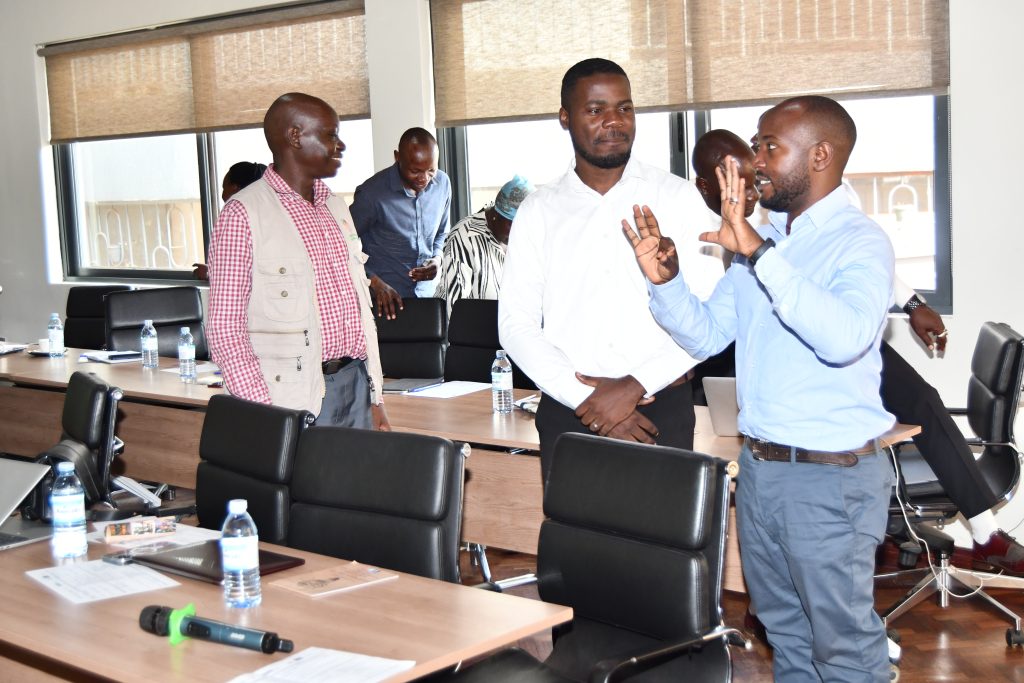
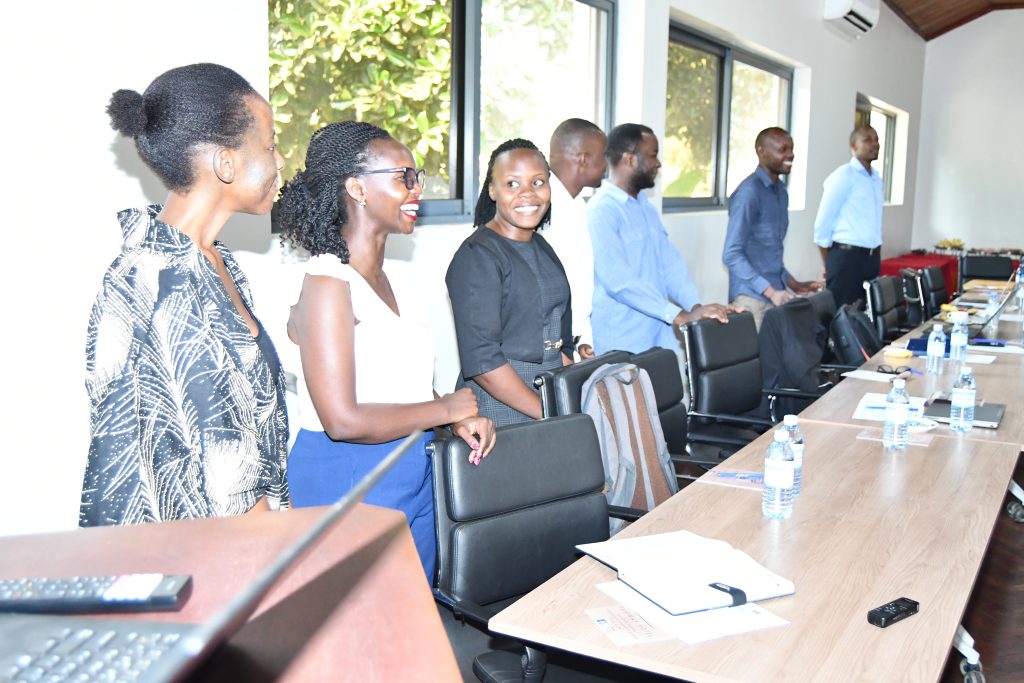

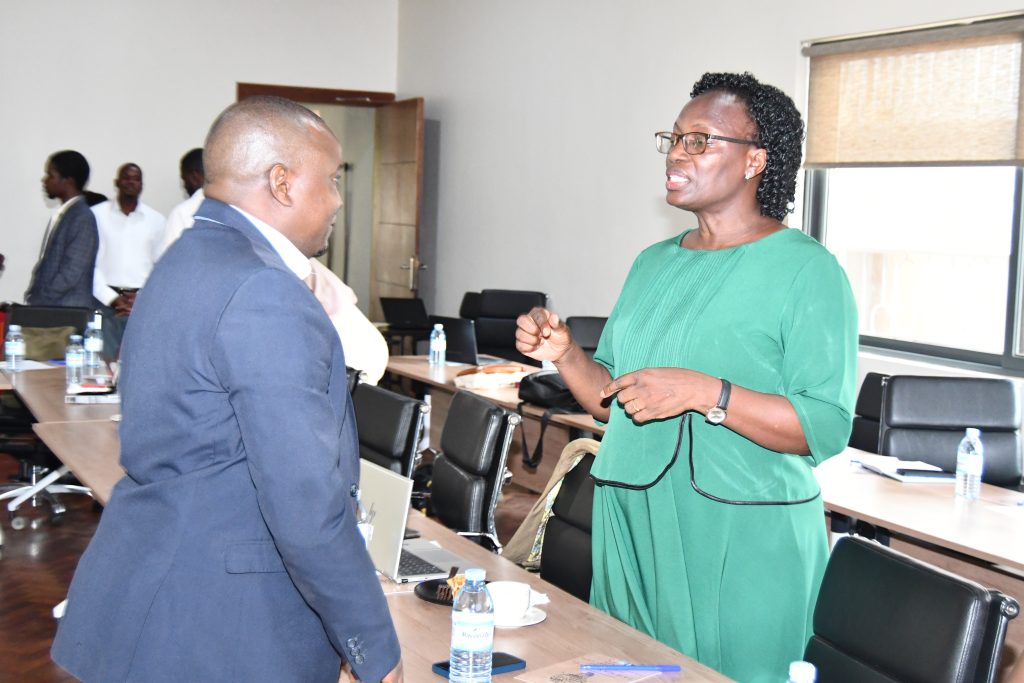
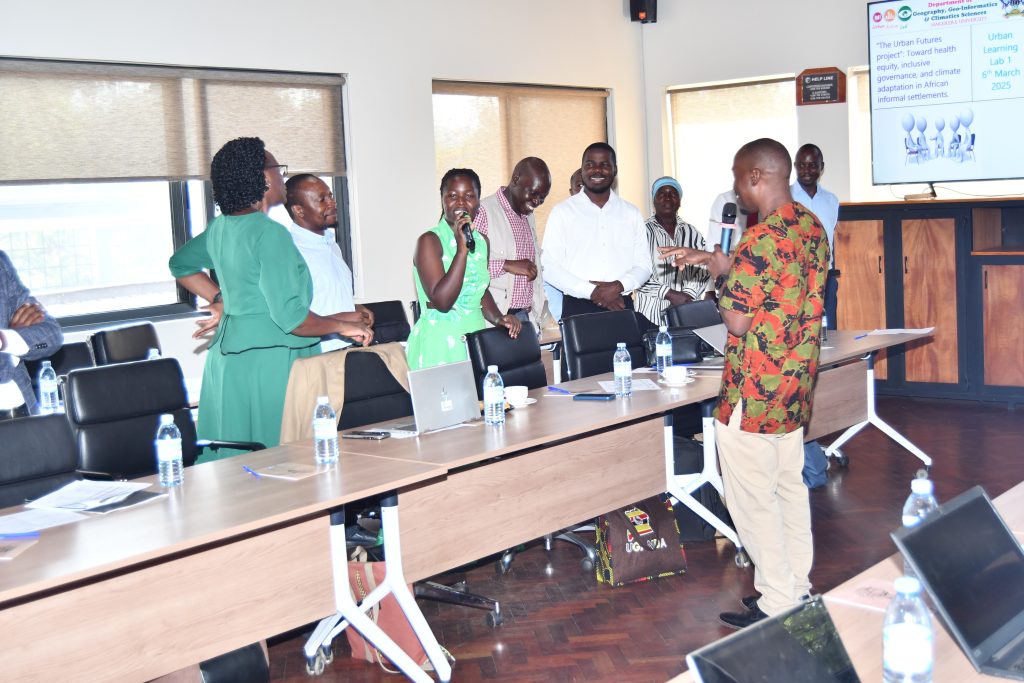
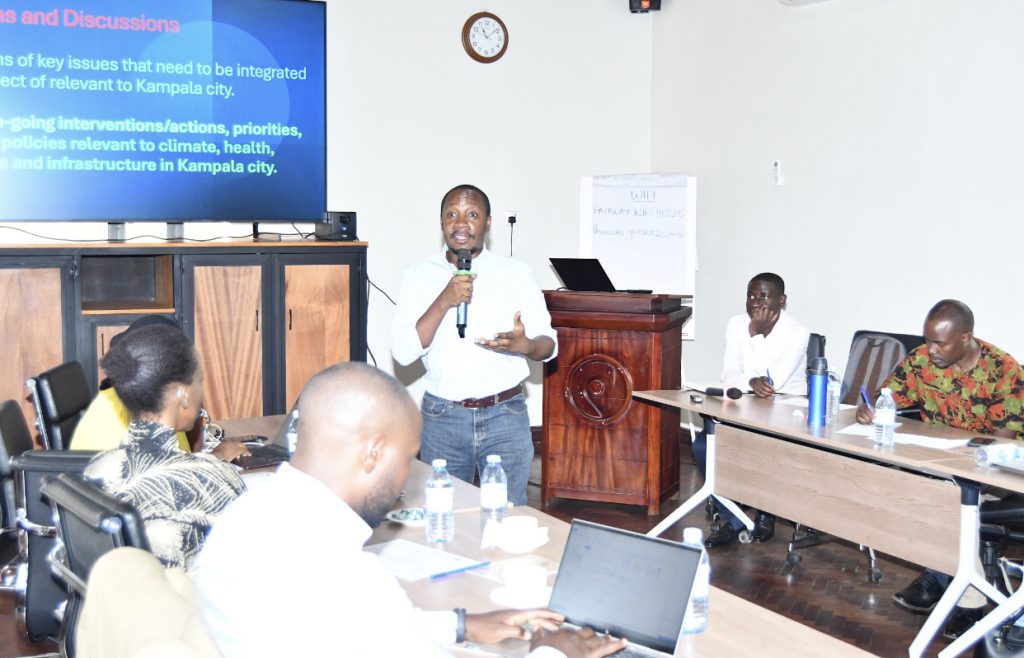
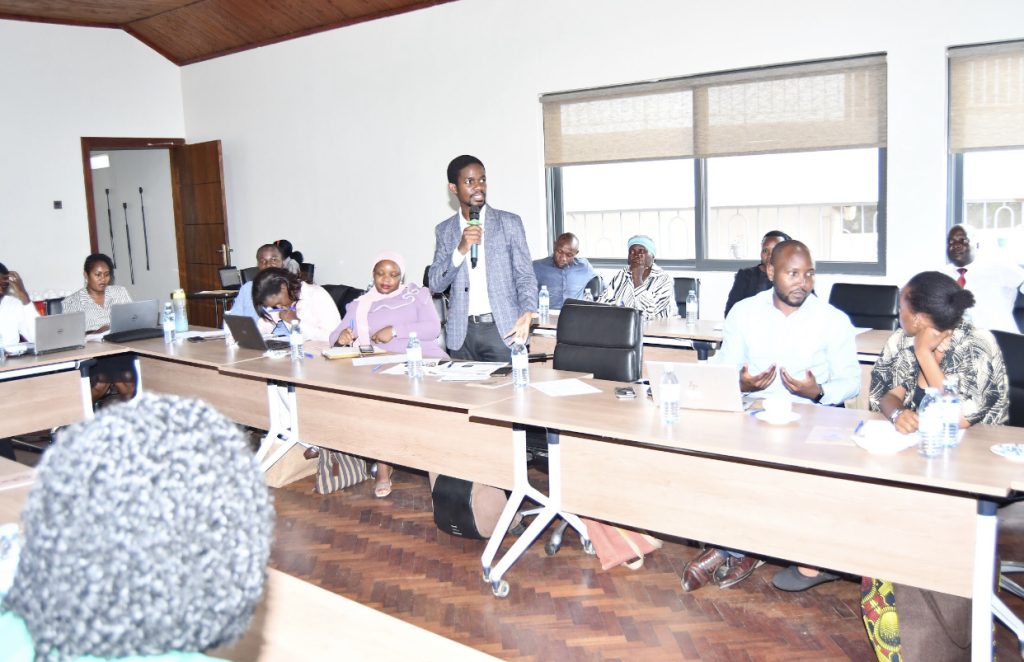
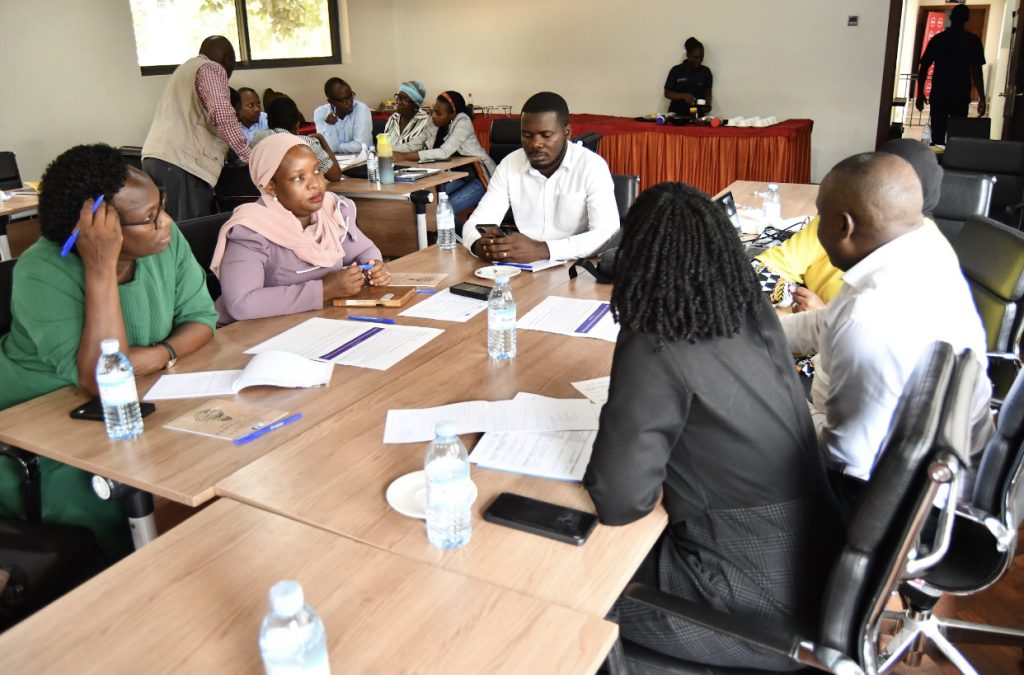
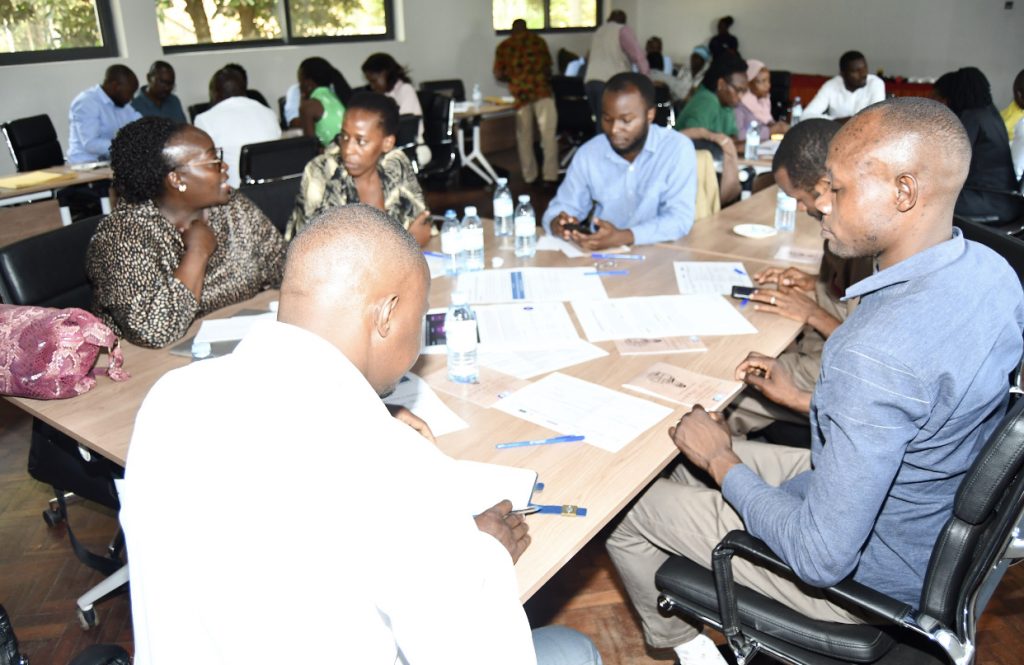
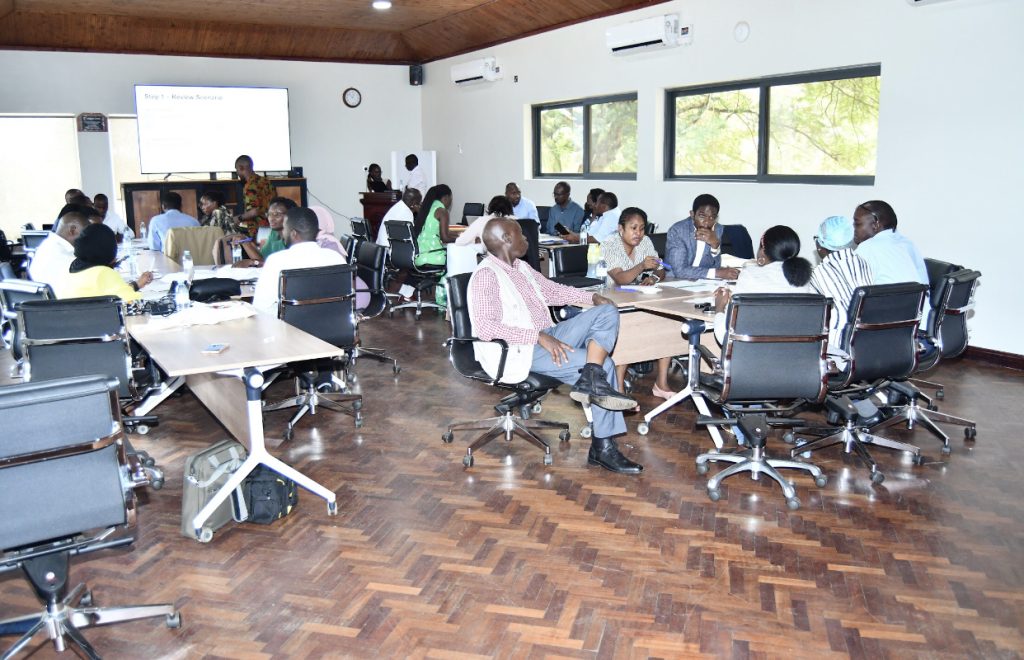
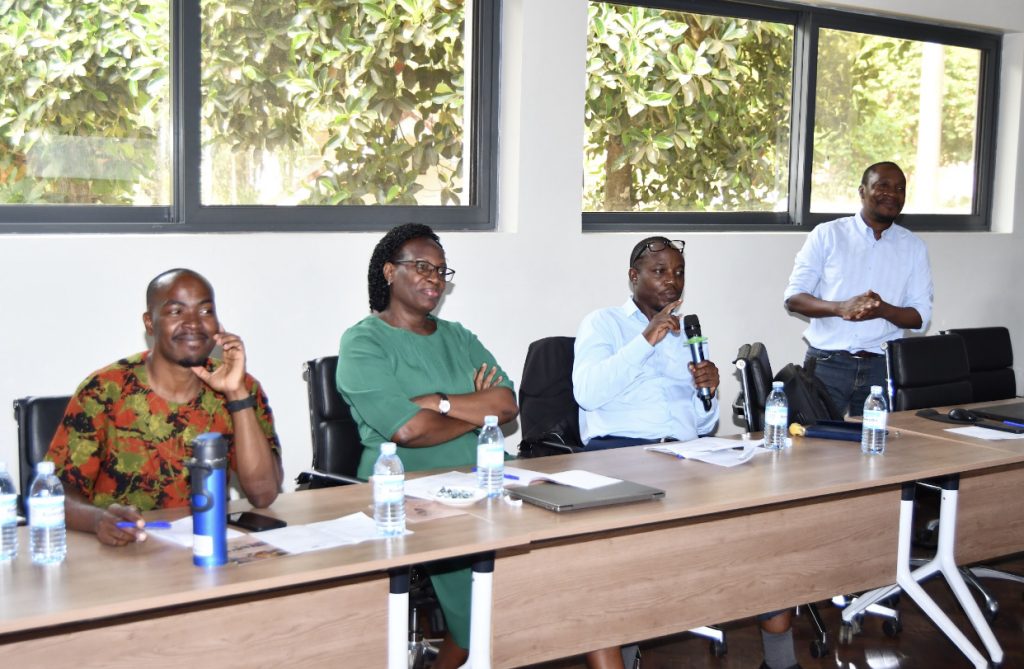
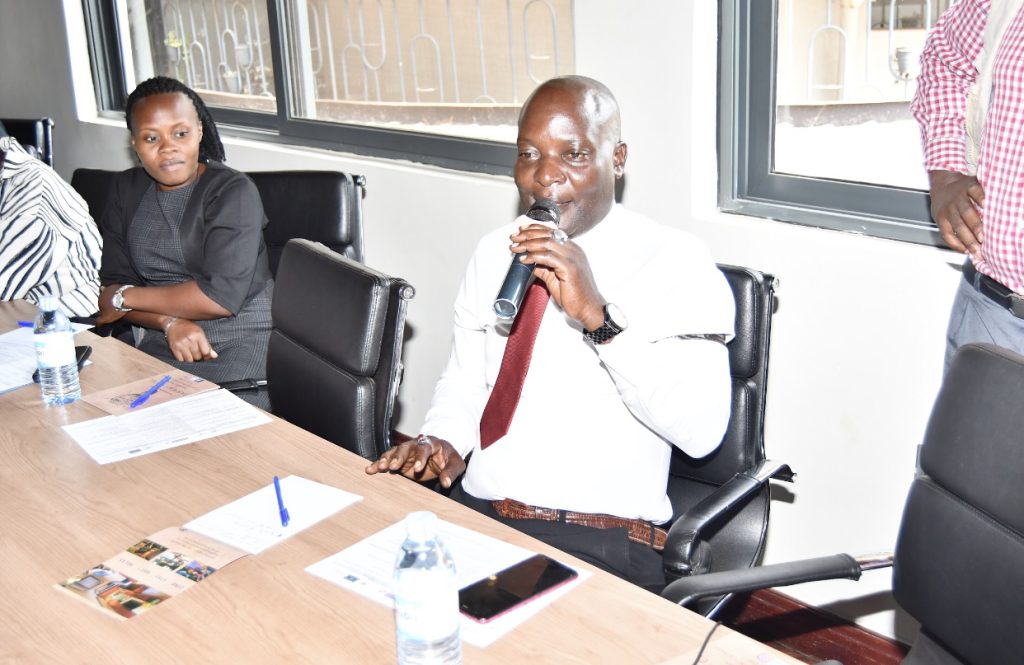
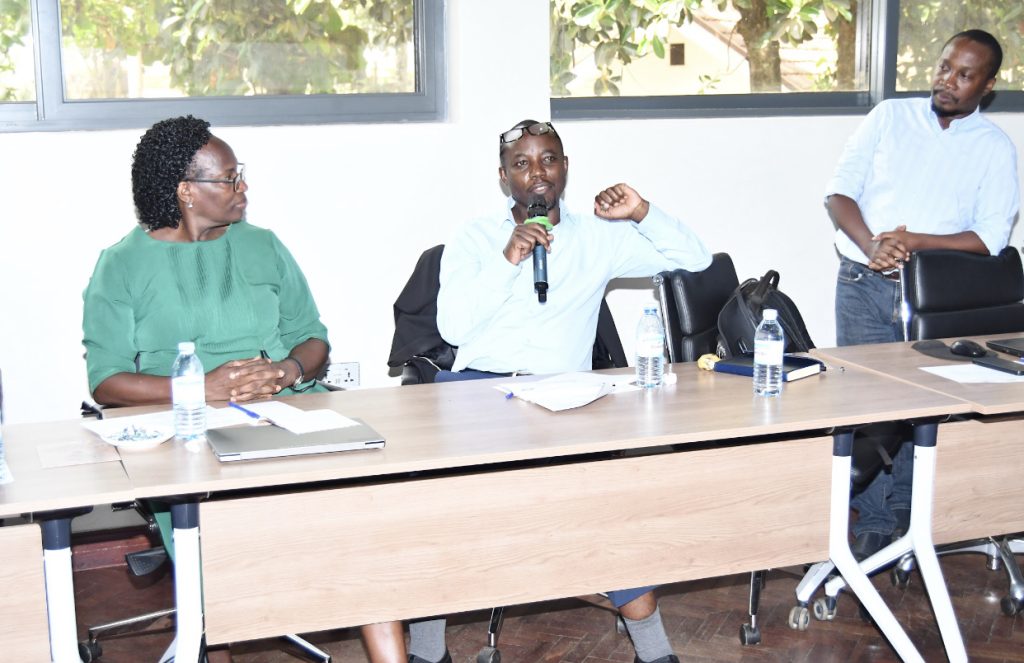
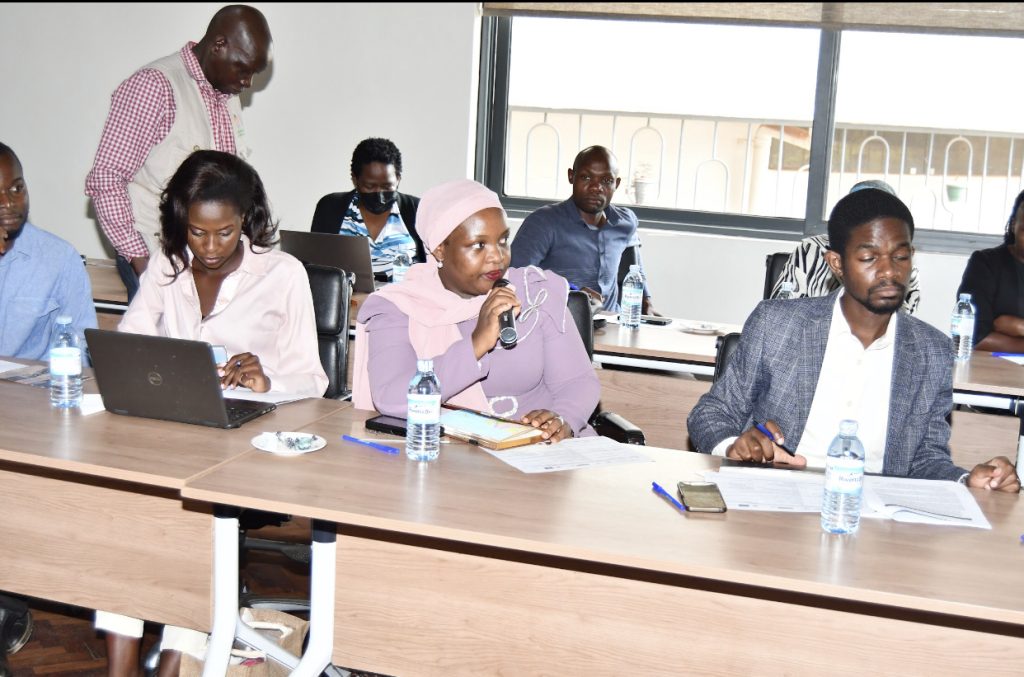
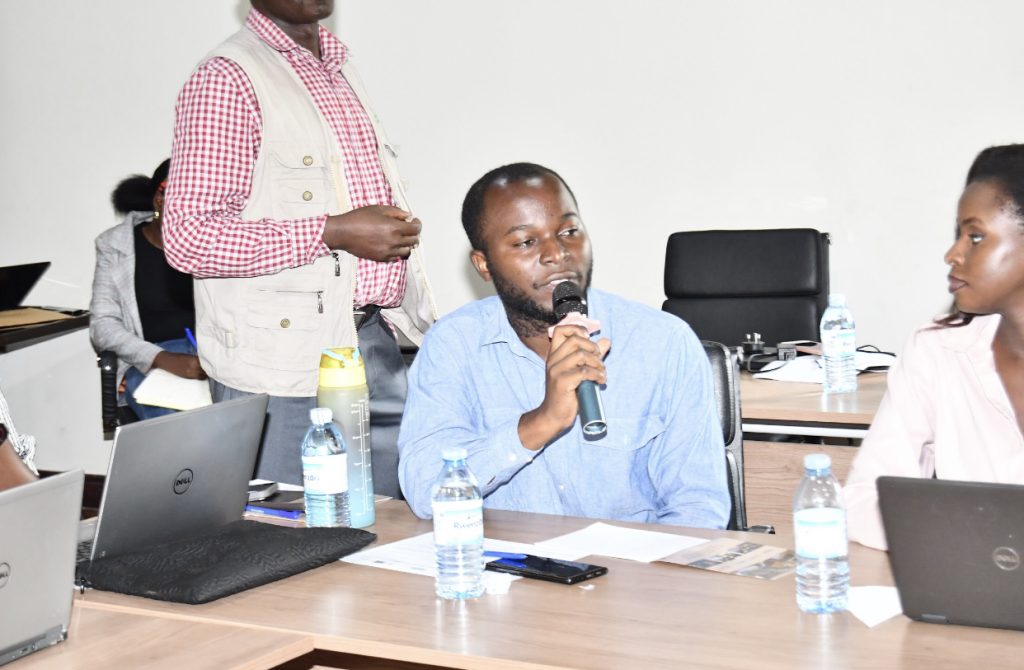
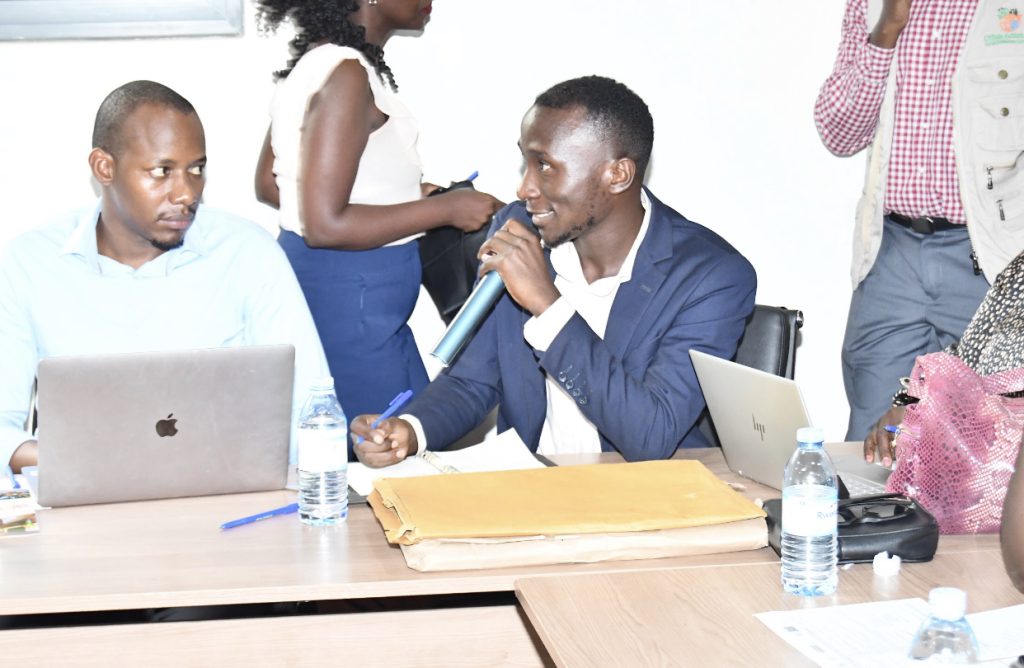
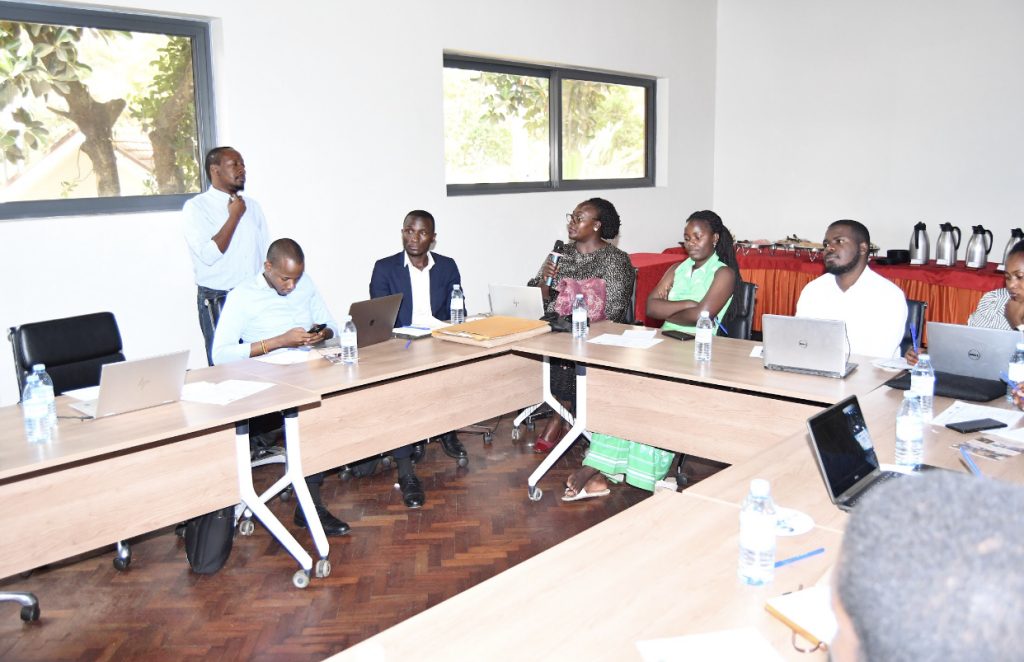

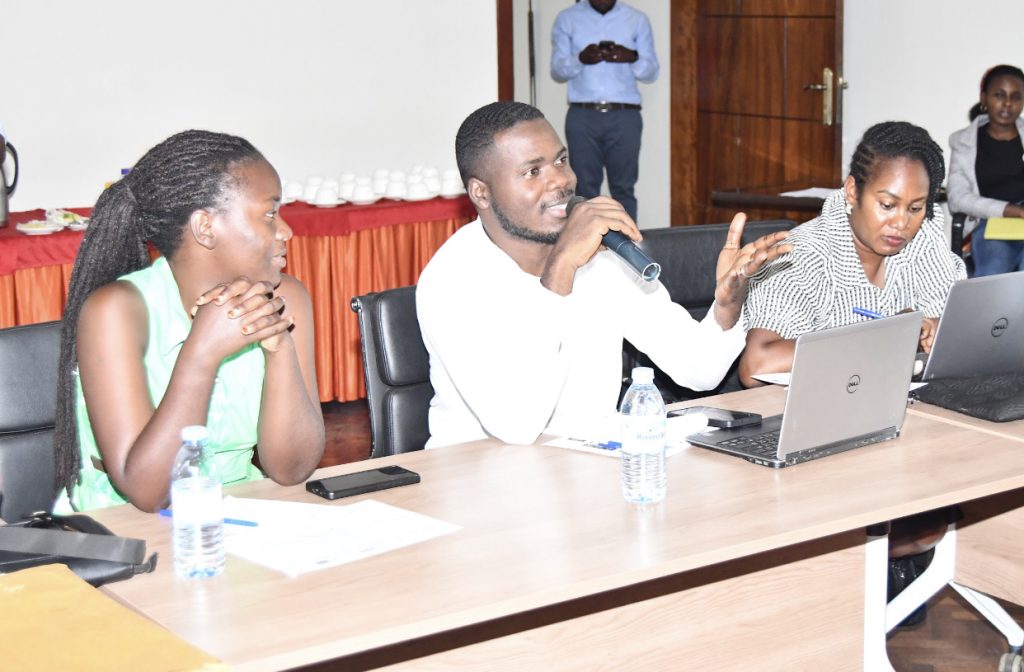
Article By Kasemiire Mariam, Makerere University

